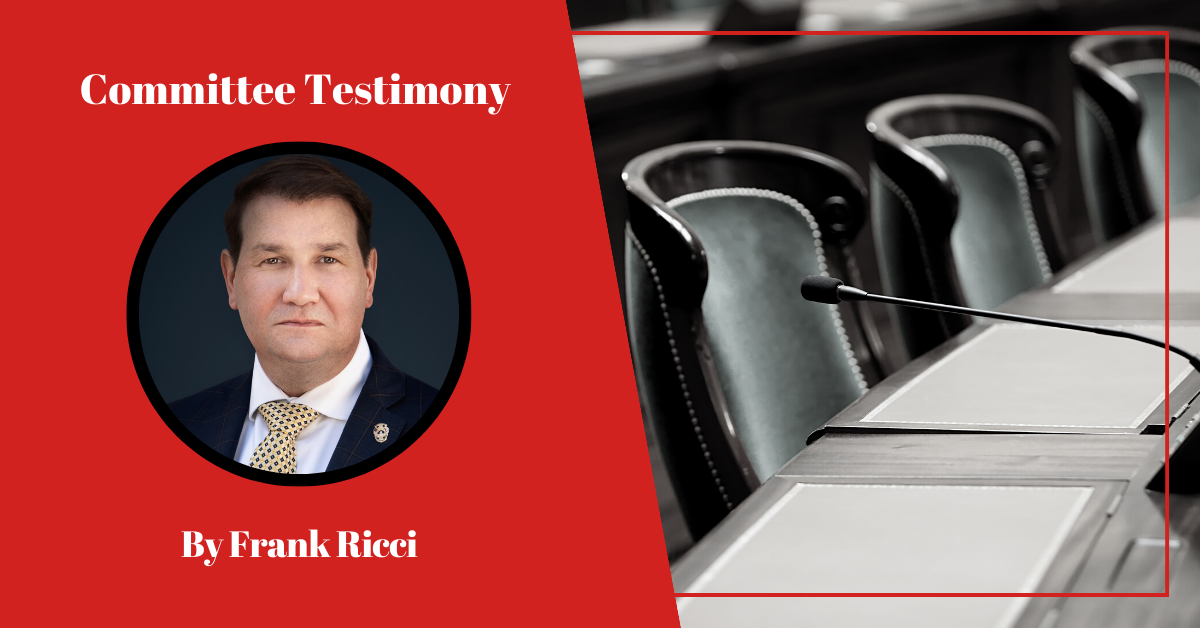My name is Frank Ricci and I serve as Yankee Institute’s Labor Fellow. Yankee Institute is a policy organization dedicated to empowering Connecticut’s people to forge a brighter future for themselves and their families.
Yankee Institute opposes this concept bill that seeks “[t]o require the Comptroller to fund the unfunded pension liability portion of the fringe benefit cost for employees of the constituent units of the state system of higher education.”
Connecticut taxpayers cannot afford to repeatedly redistribute escalating debt caused by financial irresponsibility. Proposing another bailout and increased funding to the University of Connecticut (UCONN) and UCONN Health Center only serves to incentivize the very behaviors that have significantly contributed to making Connecticut unaffordable.
The public may have the perception that these institutions pay for themselves through tuition, outside grants and their endowment. But they are already heavily subsidized by the taxpayers. The General Assembly was recently bombarded by protests by students and university officials demanding that short-term federal funding from the pandemic be picked up by the state going forward.
Pandemic funding was never intended to be a windfall. These payouts were intended as a one-time expenditure to address a public health crisis. UCONN and UCONN Health Center have demonstrated an appetite for tax dollars that goes beyond supporting growth without enacting significant cost controls to better their own situations.
Connecticut continues to focus on treating symptoms without defining the problem, determining proper solution’s all while avoiding accountability for past failures.
Absent from the ongoing unfunded liability debate is the fact that in 1971 Connecticut passed a law which says the state must pay the full annual contribution toward its pensions and the unfunded liabilities by 1985. Marc Fitch reported that, “Connecticut was paying 100 percent of its annualized pension costs in the years leading up to Connecticut’s income tax.”
This common-sense public policy is still in effect today—so how could Connecticut find itself with past budget shortfalls even as it infuses exorbitant amounts of capital funding to bolster unfunded liability?
Connecticut is one of the few states that allows “supercedence” —and this is an example of it. This statute allows for a state union contract to override state law. This ill-founded process does not consider the long-term implications of the resulting agreement, often to the detriment of taxpayers.
Lawmakers have an opportunity to help repair the pension system instead of continuing to offer bailout after bailout. First, amending the law to prohibit supercedence on any pension or healthcare provisions in union contracts would bring better balance to the union negotiating table. Second, ensuring that public unions and state management cannot hide public records from public scrutiny in union contracts would also be a positive step going forward. Too often, such secrecy clauses only serve to protect employees who have engaged in egregious wrongdoing, including instances of sexual harassment professors and state employees abusing their power and influence.
State union leaders and elected officials from both parties have traded Connecticut’s financial health for politically easy and expedient choices. The continued ability to defer pension payments is a consistent threat that could result in further balloon payments if not fundamentally addressed today.
Former State Comptroller Kevin Lembo acknowledged that these deferments created crushing debt akin to an “avalanche” that would keep growing, thereby crowding out other priorities – making Connecticut more business friendly, providing needed tax reform, and other education and infrastructure spending.
Connecticut currently is moving in the right direction with financial guard rails. The road can be easily undermined, however, and the path to fiscal health is still rocky because there are those who seek to misallocate scarce resources to unsound programs. Ending supercedence in Connecticut and enacting structural reforms will ensure that guard rails remain in place, positioning both the state and the university to succeed in the future.
Proposed H.B. No. 6564 only distributes more debt onto the taxpayers without providing any responsible controls or solutions to curb further irresponsible funding.
Thank you for the opportunity to provide testify before this distinguished committee.
Frank Ricci
Labor Fellow
Yankee Institute
203-285-4907

